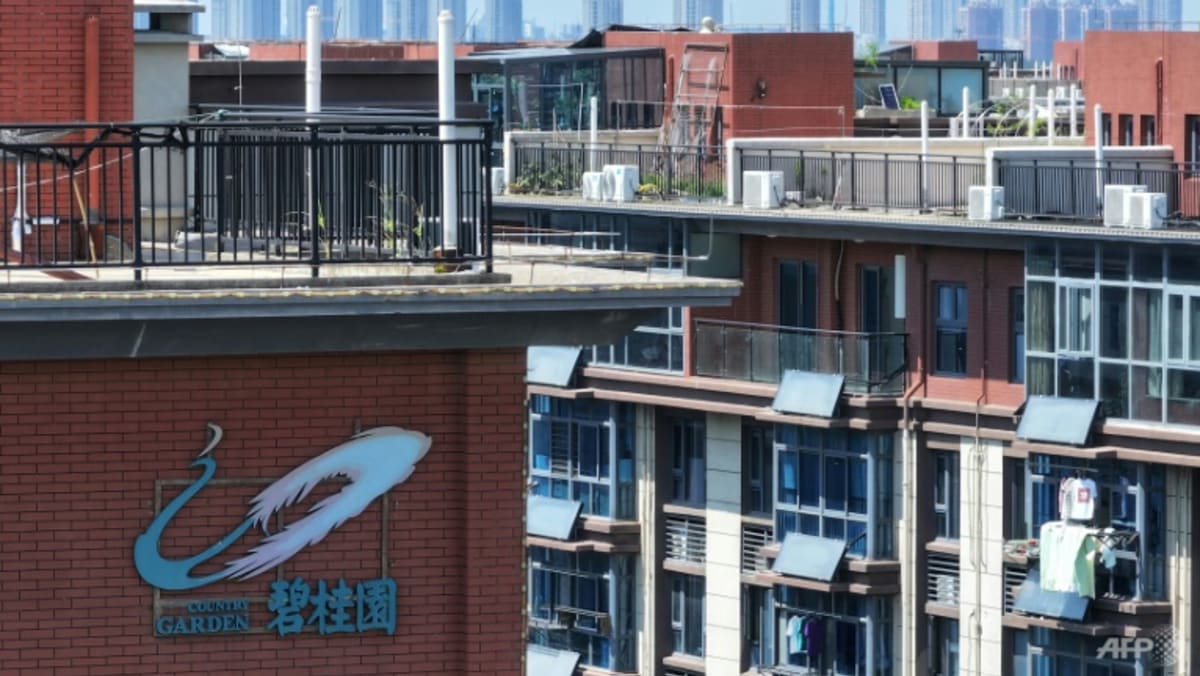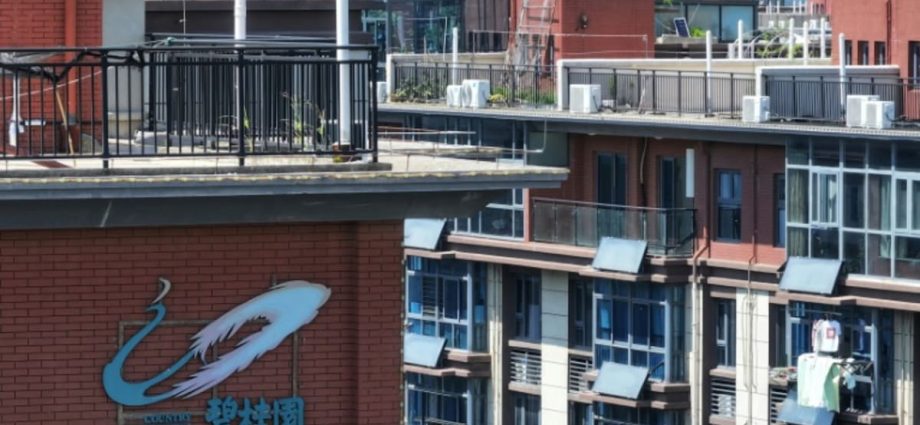
State of play
Country Garden says 96 per cent of its cash flow comes from real estate sales.
But the Chinese property market is slumping: prices are on the decline and buyers are reluctant to invest as the broader economy stalls.
Many property giants have had no choice but to sell at a discount.
Country Garden’s situation is all the more precarious because around 60 per cent of its projects are located in smaller Chinese cities, where property prices have fallen the most and local customers have relatively low purchasing power.
The firm reported having 147.9 billion yuan (US$20.3 billion) in cash at the end of June.
Broader risks
Country Garden has four times as many projects as its rival Evergrande, which defaulted in 2021 and prompted protests and monthly payment strikes last year with its shutdown of construction sites.
Any halt to construction work presents the risk of social instability in China, where homeowners often pay for a property before ground is broken.
Like Evergrande, which holds debt adding up to more than US$300 billion, any collapse of Country Garden would have catastrophic repercussions on China’s financial system and wider economy.
Headquartered in the southern city of Foshan, Country Garden employed nearly 58,140 “full-time” staff one year ago, according to a comparison of statements on its workforce.
Light at the end of the tunnel?
Chinese authorities have moved in recent days to boost support for real estate, a sector accounting for a quarter of the country’s GDP.
On Thursday, the central bank announced the lowering of mortgage rates for first-time buyers from Sep 25.
And several major cities, including Beijing and Shanghai, are easing their criteria for obtaining mortgages in a push to stimulate demand.
But this is not likely to be enough to revive real estate, economist Michelle Lam, of Societe Generale, said.
Ongoing woes for developers will continue to “undermine the confidence” of potential buyers, she said.

